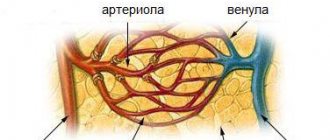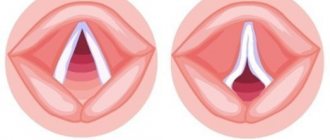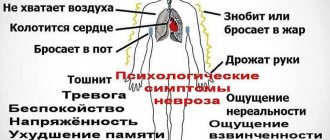This condition is very dangerous for the human body and can lead to undesirable consequences.
- Causes
- Signs and symptoms
- Types of overwork
- Possible complications
- Prevention
- Treatment
Signs of fatigue in children
Fatigue and overwork are successive stages of exhausting physical or mental activity. If in adults depletion of energy reserves usually occurs mainly under increased emotional stress, then children first become very tired for many months at school or at home during the learning process, and in their free time they also attend several clubs.
Subsequently, characteristic signs of overwork in children appear:
- tearfulness, irritability;
- strange sleepiness during the day;
- the appearance of fatigue after minor exertion;
- a sharp change in mood when it is necessary to do the usual housework or when asked to do homework;
- troubled night's sleep;
- mental instability, the appearance of strange and causeless hysterics;
- loss of appetite, up to complete refusal to eat;
- rudeness in dealing with elders;
- an increase in temperature in a child due to overwork, after an active school day, when you need to remember and absorb a lot of information in a short time.
When such changes appear in children’s behavior, adults often begin to talk about the child’s ingratitude or bad manners. But it's worth looking deeper. School curricula today are not just fast-paced, but confusing, and classrooms are overcrowded. Teachers simply do not have the opportunity to convey information to every student, and parents do not always have the time and knowledge to study new topics with their child every day.
Children become hostages of this situation. They bring bad grades, which upsets moms and dads, grandparents, and if at first they try to keep up and understand new information, then, not seeing the result, they simply give up and begin to despise some subject and some work that brings so much problems and negative emotions.
Expert opinion Children, due to overwork, often get sick for a long time, and they have an increased risk of developing infectious complications of common ARVI. A child in this condition needs to immediately reduce physical and mental stress for several weeks and receive as many positive emotions as possible.
But overwork is not a reason to be lazy. On the contrary, walk more with your children in the fresh air, change activities so that more positive emotions arise and you can use those muscle groups and areas of the brain that are not used so actively during normal times.
Presence of a mental block
This concept means exhaustion , which prevents the continuation of mental activity. You just can't think until you calm down to regain your strength and then continue again.
Psychology journal researchers studying psychological mental fatigue have found that mental blocking works as an automatic defense that prevents a person from living uninterruptedly. In other words, you cannot use your own brain for wear and tear, because it will stop working at the moment of real fatigue.
In the photo: “That’s it. The brain doesn't think. I'm in a trance. I withdrew into myself. Don't touch me - let me rest."
The brain doesn't think. I'm in a trance. I withdrew into myself. Don't touch me - let me rest."
Signs of fatigue in adults
Characteristic symptoms of fatigue in adults can appear at an advanced stage, when the body's reserves are depleted and it is difficult to restore them only with the help of short-term rest. For a long time, compensatory mechanisms replenish the wasted strength and energy. This is why the initial symptoms of overwork go unnoticed or are perceived as ordinary fatigue.
Table The main signs of overwork of varying degrees in adults
| Signs of overwork | Initial degree | Average degree | Severe degree |
| Decreased physical performance | Decreased physical activity during intense exercise and sports | Reduced performance under normal load | Performance decreases even when doing light work |
| Emotional condition | Temporary decrease in interest in what is happening against the background of increased workload | Unstable emotional state, frequent mood swings, irritability | Severe chronic fatigue causes obvious depression, possible outbreaks of irritability and even aggression |
| Sleep disorders | Absent or slightly expressed | There is severe drowsiness during the day, and at night sleep is often restless and intermittent. | Serious sleep disorders (insomnia, sleepiness during work hours) |
| Decreased mental activity | None | The ability to perceive and remember information decreases | A person does not tolerate even minor mental stress and reacts with depression, headaches, and aversion to work. |
| Resistance to stress | High | The body begins to react more acutely to even short-term stress | Low resistance to stress factors, the adaptogenic capabilities of the body are sharply reduced |
Additional signs of fatigue:
- rapid heartbeat that occurs several times a day;
- sweating, especially at night and in moments of excitement;
- forgetfulness and confusion;
- a slight increase in body temperature is possible;
- headache.
Severe symptoms of fatigue in adults are an indication for treatment and comprehensive care. Over the long months of this state, certain mental changes occur. A person begins to get used to the fact that he often grumbles or remains silent, and may respond impolitely or react aggressively to other people’s statements. And nervous fatigue is the hardest thing to treat.
During tiring physical work, a short rest is enough to recover. Overfatigue in sports, for example, can be easily relieved with the help of quality nutrition and long sleep - literally in 3-4 days. But prolonged exposure to psychotraumatic factors and nervous strain requires additional help from a psychotherapist.
Symptoms
Overfatigue can occur in 3 stages, and the symptoms depend on this. Common features include:
- Unreasonable headache.
- Strong, which lasts even after a night's sleep.
- Red eyes.
- The complexion changes, swelling and bruising can be seen under the eyes.
- It’s hard to fall asleep, many different thoughts are confused in your head.
- Jumps or .
- The person is nervous and irritable.
- Problems arise with memory, attention, and it is difficult to concentrate.
- Nausea with vomiting.
Please note that these signs can often indicate a specific disease - a sharp decrease or increase in blood pressure, headache, nausea, disruptions in the functioning of the heart and blood vessels.
What Causes Overtiredness
Overwork is the first step to the development of chronic fatigue syndrome and even depression. Moreover, when physical and mental resources are depleted, a person is in real danger of becoming seriously ill. Other sores easily “cling” to it. And it is impossible to say exactly from which side the blow will come in the form of an exacerbation of a chronic disease or the development of an acute pathological process.
The main causes of overwork in adults:
- prolonged exposure to stress;
- psychological pressure coming from loved ones, work colleagues, business partners;
- financial difficulties;
- irregular working hours, which involves a violation of the standard sleep and wakefulness pattern;
- psychotraumatic situations in life;
- lack of nutrients, strict diets;
- dissatisfaction with one’s own appearance, an obsessive desire to change something about oneself;
- grueling workouts, especially strength training, increased anaerobic loads;
- unfavorable living or working conditions;
- long-term course of chronic diseases, the development of pathologies that are accompanied by a pronounced deterioration in well-being, pain, motor limitations, and deterioration in appearance.
People who do monotonous work for a long time, get little rest and periodically experience stress are prone to overwork. An alarming signal should be a feeling of extreme fatigue and weakness that occurs closer to the middle of the day, when most still have the strength and physical activity to continue their usual activities.
If your performance decreases significantly until the evening and an irresistible desire to sleep arises, you need to take a break and change your occupation for at least a few days.
Without treatment, symptoms of overwork can develop into more serious conditions, including depression and chronic fatigue syndrome, which is so common among metropolitan residents. For many, the share of physical labor is negligible, and mental stress without release in the form of sports, walks and a change in habitual activity quickly tires and negatively affects a person’s psycho-emotional state.
No free time
When was the last time you were on vacation, remember? No? A study published in the journal Environment and Behavior found that there are 2 strategies that can help you effectively manage your mental fatigue.
One strategy is to try to avoid unnecessary costs that are not necessary from the point of view of attention management. In other words, you need to limit your thought processes. For example, assign some tasks to people you trust, or delay making decisions if they are not urgent.
In another case, it is necessary to increase the efficiency of restoration processes. You need to get into a restorative environment. For example, visit the SPA center. It refreshes your mind well and you will be able to think more clearly. Even a short stay in the sun is what you need to continue moving.
Which doctor should I contact if I have signs of fatigue?
Many people incorrectly believe that symptoms of fatigue do not require any treatment. In fact, the person needs medical care. But not in prescribing any serious medications (although they may be necessary at a severe stage of fatigue), but in using methods that have a positive effect primarily on the nervous system and emotional sphere.
A consultation with a psychologist is often required: experts have long noticed that people “burn out” and get tired faster if they have problems communicating with relatives, and quarrels periodically arise due to misunderstandings. A psychologist will help you understand the situation, tell you how to improve relationships in society and avoid conflicts in the future.
It is imperative to involve a psychotherapist, neurologist or neurologist in the treatment of overfatigue. These specialists prescribe an examination and determine concomitant diseases. Fatigue can be combined with hypertension, chronic gastrointestinal pathologies, and then the doctor refers the patient to a therapist, gastroenterologist and other specialized specialists.
In this video, a psychotherapist talks about the causes of overwork and options for dealing with the problem.
Overwhelmed by emotions
Anxiety or depression can be important symptoms of mental fatigue. A person may simply feel completely hopeless about how they will be perceived by others. Mental fatigue can closely resemble depression because mental energy levels will be quite low. For example, there is a feeling of anxiety that the current situation will not improve.
When a situation that causes psychological mental fatigue is a consequence of lack of control, then you may feel anger towards the person whom you see as the main cause of all suffering.
Features of treatment
The approach to treatment depends on the severity of the clinical manifestations of fatigue. It is necessary to normalize your lifestyle as soon as possible:
- give up tedious physical or mental labor for at least 2-4 weeks;
- restore a full night's sleep, go to bed and wake up at the same time;
- change your diet, exclude fatty, fried, smoked foods and alcohol in any form, it is also necessary to limit simple carbohydrates;
- walk in the fresh air every day and play sports at least 2-3 times a week;
- take high-quality multivitamin complexes;
- change your attitude towards stress and situations that cannot be avoided.
Restoring good health and performance. The most important thing is to reduce physical and mental stress. Not every person will allow himself to completely give up work for several weeks, but it is quite possible to reduce the rhythm of activity.
It is recommended to undergo a relaxing massage course. Physiotherapeutic procedures significantly reduce symptoms of fatigue within the first week of use. Contrast showers, oxygen baths, and Charcot's showers have a good therapeutic effect. At home, you can use Alekseev’s watering can, which has a gentle effect on tissues, but at the same time perfectly relieves tension.
Medications for fatigue are prescribed as a last resort, when nervous overstrain is combined with signs of depression and insomnia.
Symptoms of cerebrospinal gravis
Depending on the predominant clinical manifestations, the following types of cerebrasthenic syndrome are distinguished:
1. Asthenohyperdynamic:
- fussiness;
- irritation for any reason;
- aggression (can even reach the use of physical force);
- restlessness;
- physical activity.
2. Asthenoadynamic or atenopathic:
- constant drowsiness, even after a normal night's sleep;
- lethargy;
- indifference;
- indifference to everything that happens around;
- laziness;
- inactivity;
- inactivity.
3. Asthenodysthymic or mixed variant,
which combines the characteristics of other species. This is characterized by frequent mood swings, a rapid transition from apathy to aggression, and tearfulness. General symptoms:
- headache;
- dizziness;
- nausea, vomiting;
- disorders of the stomach and intestines (constipation, causeless diarrhea);
- vegetative manifestations: tremor of the eyelids, sweating of the skin;
- poor tolerance to heat and changes in atmospheric pressure.
Cerebroasthenia has its own periods of exacerbations and remissions, during which symptoms can either disappear altogether or be present at a minimal level. In some patients, remissions as such are not observed, and they constantly feel symptoms of exhaustion of the nervous system. Exacerbations are clearly associated with the presence of provoking factors - changes in the usual daily routine, lack of sleep, stress, increased mental and physical stress, bad habits.










